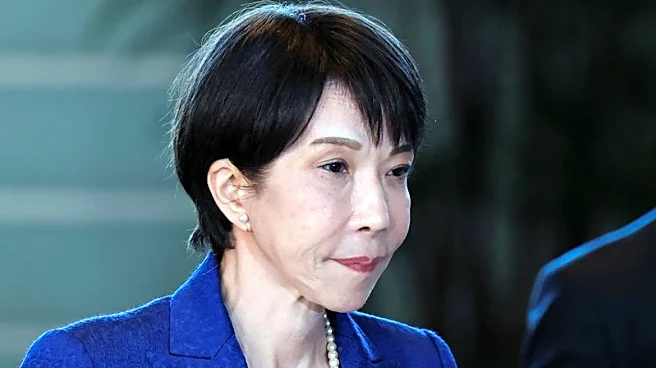What's Happening?
CNN's chief White House correspondent, Kaitlan Collins, shared insights into the challenges faced by staffers traveling with President Trump. According to Collins, staffers dread these trips primarily because President Trump does not sleep, often waking them up for discussions. This revelation came during Collins' appearance on Jason Tartick's Trading Secrets podcast, where she recounted firsthand accounts from Trump aides about the exhaustion of working in his orbit. The issue of sleep deprivation among staffers was further highlighted by a Fox News producer, who mentioned that none of the team members are sleeping due to the president's habits. Collins also noted the upcoming trip to Southeast Asia, predicting that staffers would face similar challenges during the long-haul flight.
Why It's Important?
The sleep deprivation experienced by staffers traveling with President Trump underscores the demanding nature of working closely with high-profile political figures. This situation could impact the efficiency and well-being of those involved, potentially affecting their performance and decision-making capabilities. The broader implications include the need for better management of work-life balance for staffers in high-pressure environments, which could lead to discussions on workplace policies and mental health support within political circles. The issue also highlights the personal demands placed on individuals working in close proximity to influential leaders, raising questions about the sustainability of such work conditions.
What's Next?
As President Trump prepares for his upcoming trip to Southeast Asia, staffers may need to brace themselves for another round of sleep deprivation. This could prompt discussions within the White House about implementing measures to ensure staffers' well-being during such trips. Additionally, the revelation may lead to increased scrutiny of the working conditions faced by political aides, potentially influencing future policies aimed at improving their work environment. Stakeholders, including political leaders and human resource departments, might consider strategies to mitigate the impact of such demanding schedules on staffers' health and productivity.










